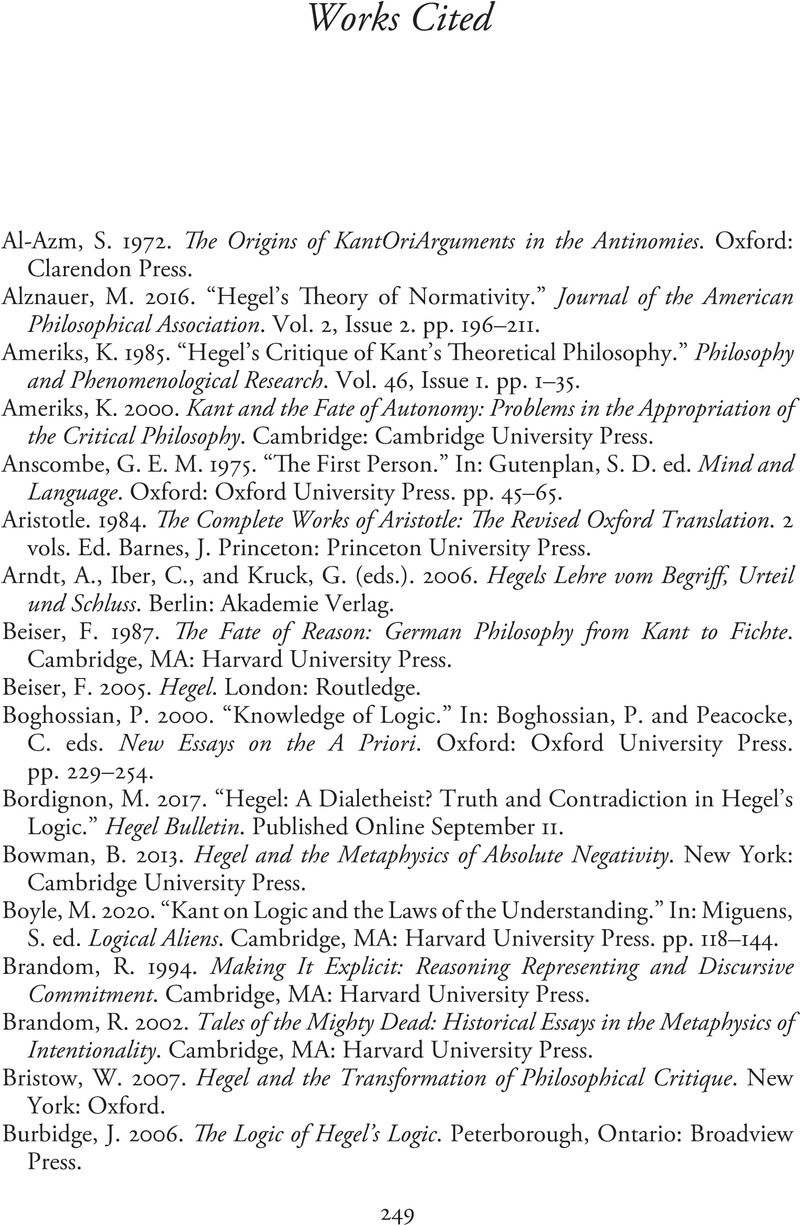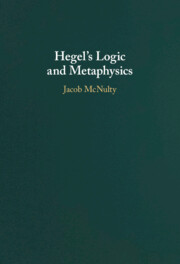Book contents
- Hegel’s Logic and Metaphysics
- Hegel’s Logic and Metaphysics
- Copyright page
- Dedication
- Contents
- Preface
- Acknowledgments
- Abbreviations
- Introduction
- Chapter 1 “Irrational Cognition of the Rational”
- Chapter 2 The Ontological Proof as “the True Critique of the Categories and of Reason”
- Chapter 3 Hegel’s Critique of “the Former Metaphysics”
- Chapter 4 Hegel’s Response to Kant’s Critique of Metaphysics
- Chapter 5 Logical Contradiction and Real Opposition
- Chapter 6 Mediated Immediacy: Concept, Judgment and Syllogism
- Chapter 7 Conclusion
- Works Cited
- Index
- References
Works Cited
Published online by Cambridge University Press: 26 April 2023
- Hegel’s Logic and Metaphysics
- Hegel’s Logic and Metaphysics
- Copyright page
- Dedication
- Contents
- Preface
- Acknowledgments
- Abbreviations
- Introduction
- Chapter 1 “Irrational Cognition of the Rational”
- Chapter 2 The Ontological Proof as “the True Critique of the Categories and of Reason”
- Chapter 3 Hegel’s Critique of “the Former Metaphysics”
- Chapter 4 Hegel’s Response to Kant’s Critique of Metaphysics
- Chapter 5 Logical Contradiction and Real Opposition
- Chapter 6 Mediated Immediacy: Concept, Judgment and Syllogism
- Chapter 7 Conclusion
- Works Cited
- Index
- References
Summary

- Type
- Chapter
- Information
- Hegel's Logic and Metaphysics , pp. 249 - 258Publisher: Cambridge University PressPrint publication year: 2023

